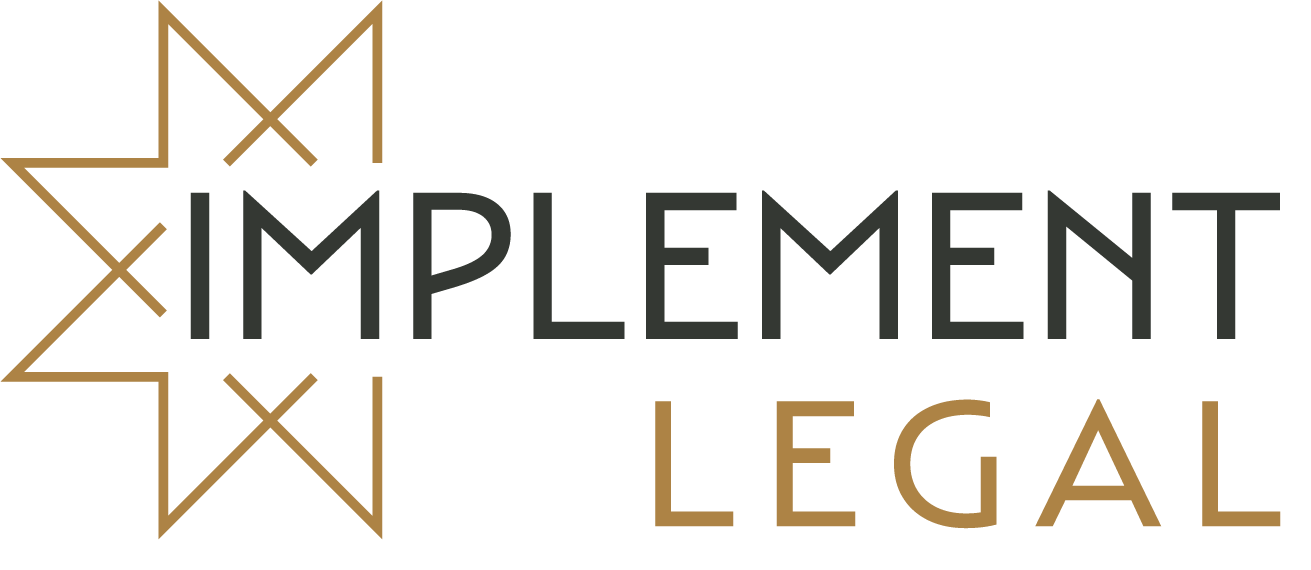Do I Need to File My BOIR or Not?
As of March 2025, we're in a period of legal uncertainty regarding BOIR filing requirements.
We’re getting a lot of questions and seeing a lot of shady advice from non-lawyers.
Let’s clear this up!
Why all the drama?
The current legal and political landscape has created a situation where filing is technically required by the Corporate Transparency Act, but enforcement of penalties for not filing, such as a $500 per day fine or possible jail time, has been suspended. This creates what lawyers refer to as a "compliance limbo"—the law exists, but it isn't currently being enforced due to court challenges and announced policy proposals.
What is a Beneficial Ownership Information Report?
For our clients’ purposes:
A Beneficial Ownership Information Report (BOIR) identifies the individuals who own or control a company or legal entity. These reports are required under the Corporate Transparency Act (CTA), which was enacted to enhance financial transparency and combat illicit activities like money laundering and tax evasion.
Key aspects of a BOIR include:
Identifying the "beneficial owners" of a company—i.e., individuals who own 25% or more of the company or exercise control over the entity.
Disclosing each beneficial owner's full legal name, date of birth, residential address, and an identifying number from a government-issued ID (like a driver’s license or passport).
Most newly formed corporations, LLCs, and similar entities in the US must file these reports with the Financial Crimes Enforcement Network (FinCEN), a bureau of the US Treasury Department.
Do I need to file a BOIR?
Maybe? Legalese ahead.
As of March 2025, the status of BOIR requirements for LLC owners has been significantly affected by legal challenges and subsequent rule changes.
In January 2025, the US Supreme Court lifted a 2024 ban on BOI reporting.
In February 2025, in response to the Supreme Court ruling, a US District Court lifted the preliminary injunction to stop BOI reporting, and this case is being appealed before the US Court of Appeals. At the same time, the House of Representatives passed a bill that would delay BOI reporting until 2026. This bill is currently with the Senate.
To address the confusion around these decisions, the Treasury Department issued guidance suspending the enforcement of penalties for failing to file a BOIR until the legal challenges are resolved. This means that while the Corporate Transparency Act has not been struck down (i.e., still the law), FinCEN is currently unable to enforce penalties against businesses that don't file their reports.
For LLC owners specifically, this means:
If your LLC was formed before January 1, 2024, you technically had until March 21, 2025, to file your initial BOI report, but enforcement of this deadline is currently suspended.
If your LLC was formed in 2024, you would have had 90 days from formation to file, but again, penalties for missing this deadline are not currently being enforced.
If your LLC was formed in 2025, the 30-day filing requirement that would typically apply is currently suspended.
The situation remains fluid as appeals work their way through the court system. So, you know, it’s complicated.
Ask yourself: “Would Tom Brady give up his home address?”
We’re practical. Ask yourself: “Would Tom Brady, Ariana Grande, or Kim Kardashian give up private information on a US Treasury form?” They’re beneficial owners of LLCs.
According to the reporting rule, Ariana Grande — a beneficial owner of the LLC behind r.e.m. beauty — must supply the US Treasury with her home address and a copy of her driver’s license. That’s what the legal cases are about — privacy for people who are not used to giving up details they’d rather keep secret.
These rules apply to everyone equally. If Tom Brady doesn’t have to give up his residential address, neither do you.
The penalties are scary, but for now, FinCEN cannot fine you $500 per day or jail you for not filing a BOIR. We’ll see what happens on appeal and what policies the Treasury issues.
What did the Treasury Department say, exactly?
The Treasury Department said, and we quote:
”The Treasury Department is announcing today that, with respect to the Corporate Transparency Act, not only will it not enforce any penalties or fines associated with the beneficial ownership information reporting rule under the existing regulatory deadlines, but it will further not enforce any penalties or fines against US citizens or domestic reporting companies or their beneficial owners after the forthcoming rule changes take effect either. The Treasury Department will further be issuing a proposed rulemaking that will narrow the scope of the rule to foreign reporting companies only.” Press Release, March 2, 2025
[Then some “All hail our magnanimous king” stuff that we don’t need to repeat.]
What does that mean?
Formally? You are legally obligated to file your BOIR by March 21, 2025 but no penalty can be enforced if you fail to (or choose not to) file.
Practically? It’s up to you.
Many lawyers are advising business owners to prepare their information and be ready to file quickly if the injunction is lifted, rather than ignoring the requirements entirely.
Some business owners are choosing to file voluntarily to avoid a potential rush of filings if the injunction is suddenly lifted.
Should I be worried?
NO.
And you don’t need to take a course or pay an agent to file your BOIR. The form is harder than getting a Tax ID but easier than filing your taxes.
We are seeing law firms and accounting firms charging between $300 and $600 per BOI report. This is a lot of cash for a simple form! But even a $20 “online course” is too much. It’s just a US Government form asking for information you probably have on hand.
That said, US Government forms can be confusing, so…
Can we talk?
Are you a client? Schedule a 15-Minute Call at the link below. We’ll help you make the right decision for your business.

